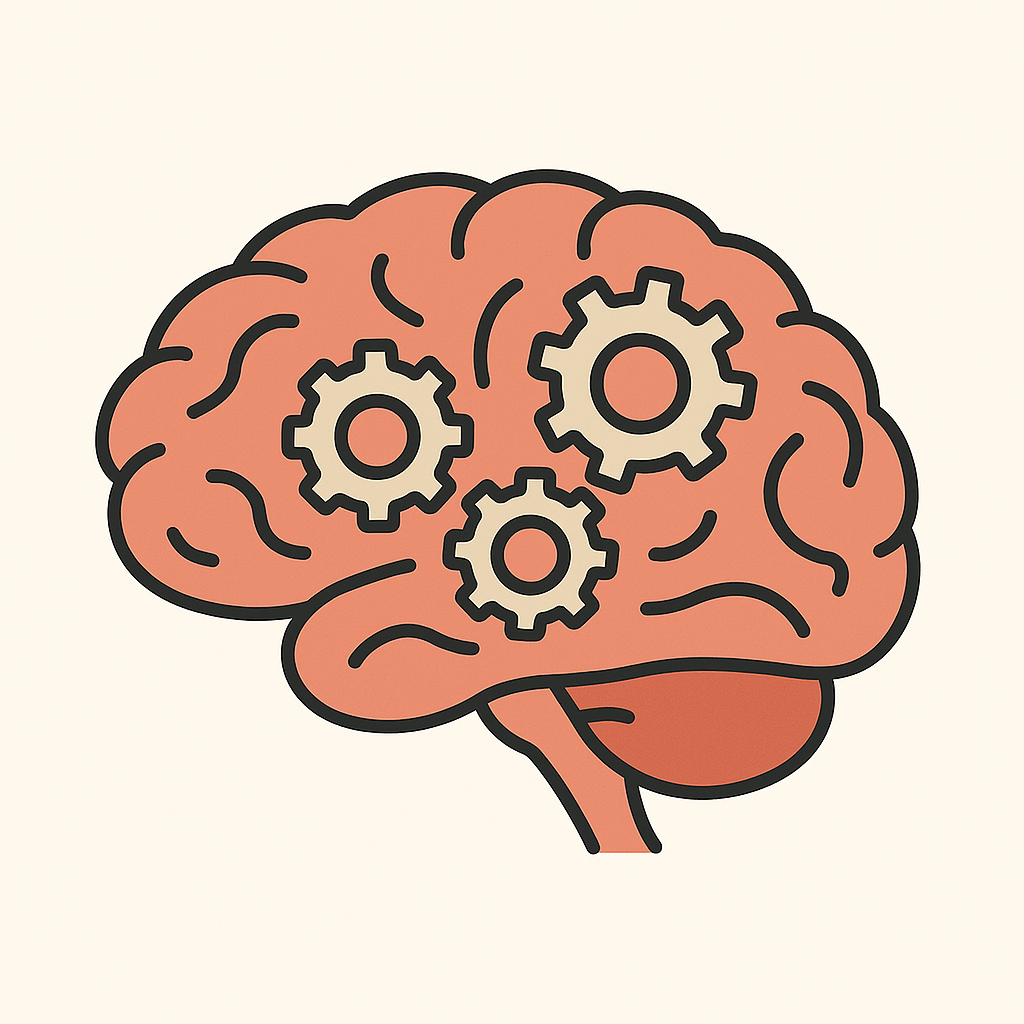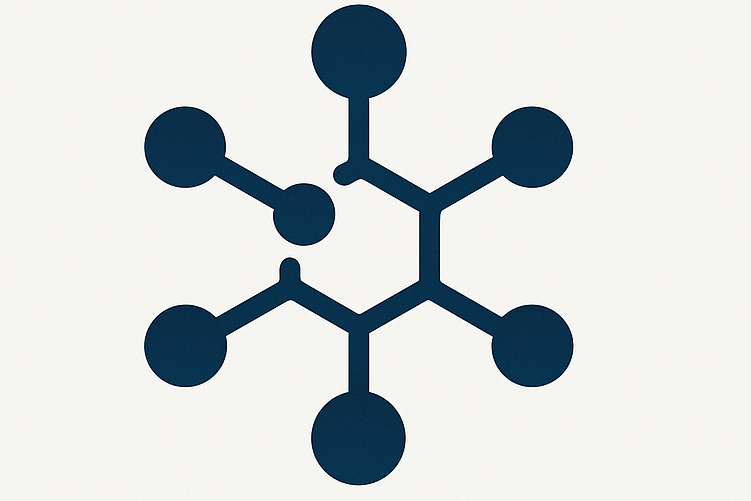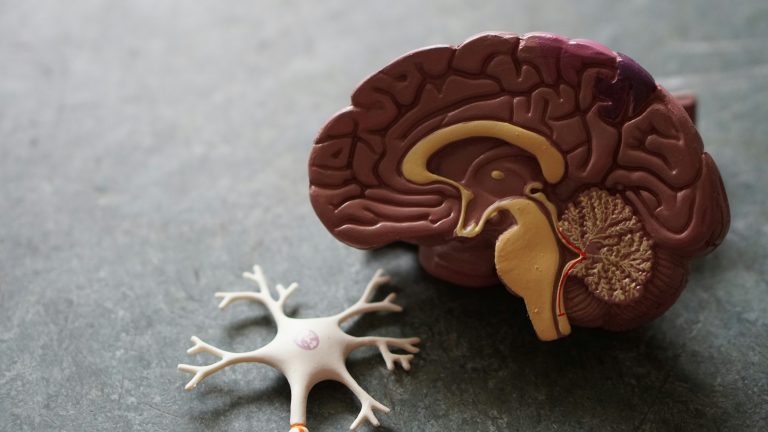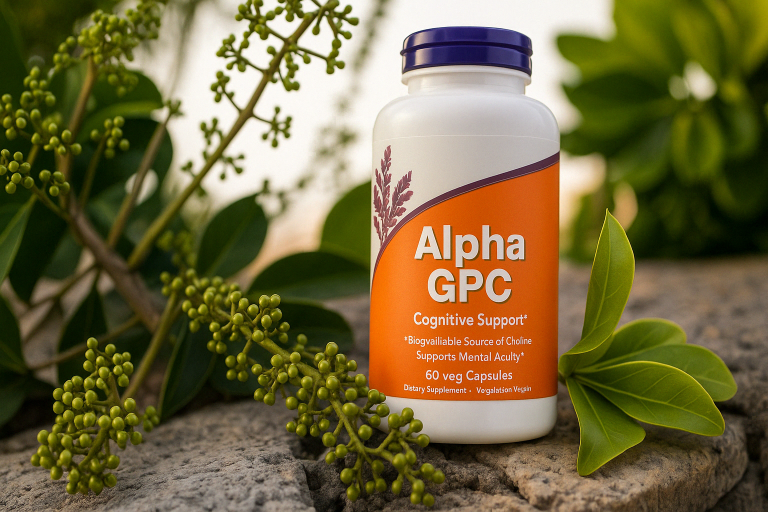Natural Nootropics: Enhance Cognitive Function Safely

In today’s fast-paced world, the quest for enhancing mental performance is more prevalent than ever.
Natural nootropics, often referred to as “smart drugs,” are gaining popularity as a natural way to boost brain function without the use of synthetic substances. These include well-known substances such as Bacopa Monnieri and Lion’s Mane Mushroom, each with unique benefits that target memory, focus, and mental clarity.

Natural nootropics provide tangible benefits like improving memory, enhancing focus, and supporting cognitive health, offering a compelling alternative to traditional cognitive enhancers.
Ginkgo Biloba, for instance, enhances memory and attention, making it a favorite among natural choices. At the same time, Ashwagandha calms anxiety, helping maintain a balanced mood while supporting cognitive functions.
As interest in these natural enhancers grows, understanding their potential and how they fit into daily life can lead to significant lifestyle improvements.
Whether someone is looking to bolster their study sessions, improve work performance, or keep their mind sharp as they age, natural nootropics offer various options. The diversity of plant-based nootropics ensures there is likely a natural solution for different cognitive needs.
Understanding Nootropics

Nootropics, often referred to as “smart drugs,” are substances designed to improve cognitive function. They come in various forms, including natural supplements, prescription drugs, and synthetic compounds. Each type offers distinct benefits and potential effects on memory, focus, and mental clarity.
Historical Background
Nootropics have roots in ancient herbal medicine practices. Natural substances like ginkgo biloba and ginseng were traditionally used to enhance memory and concentration.
The term “nootropic” was coined in the 1970s by Dr. Corneliu Giurgea, a Romanian chemist who developed Piracetam, a drug aimed at improving brain function.
Over the years, nootropics have evolved, incorporating modern research and development. Interest grew as the e-gaming community and students began using them to gain a competitive mental edge. Today, nootropics are widely adopted in various fields, from academia to professional settings, for their ability to boost brain performance.
Classification of Nootropics
Nootropics are broadly classified into three categories: dietary supplements, synthetic compounds, and prescription drugs.
Dietary supplements include herbs and nutrients like ginkgo biloba and omega-3 fatty acids, which support cognitive health naturally.
Synthetic compounds are lab-created substances, such as Piracetam, designed to enhance mental capabilities.
Prescription nootropics, like Modafinil, are used under medical supervision to treat conditions like ADHD and narcolepsy. Each classification offers unique attributes and potential side effects, making it crucial for individuals to research and select nootropics based on their specific cognitive needs and health conditions.
Natural Nootropics and Brain Health

Natural nootropics can support brain health by enhancing cognitive function and protecting brain cells. Key elements include the interaction of neurotransmitters and the maintenance of neural pathways, contributing to improved mental clarity and memory.
How Natural Nootropics Work
Natural nootropics benefit brain health by boosting cognitive functions such as memory, focus, and overall brain performance. They use plant-based ingredients, including substances like Bacopa Monnieri and Ginkgo Biloba, to strengthen mental abilities.
These natural compounds enhance neuroprotective actions, helping to shield brain cells from damage. By improving mental processes, natural nootropics empower the brain to function more efficiently, potentially increasing intelligence and understanding.
The Role of Neurotransmitters
Neurotransmitters are essential for communication in the brain, playing a key role in mental processes. Natural nootropics influence these chemical messengers to support higher brain function.
Compounds like Omega-3 fatty acids are known to help synthesize neurotransmitters. Through this mechanism, nootropics can support mental health by reducing stress and improving mood.
The balanced operation of neurotransmitters is critical for maintaining effective brain performance and cognitive abilities.
Brain Cells and Neural Pathways
Natural nootropics can support the health and growth of brain cells, which are crucial for maintaining neural pathways.
Ingredients such as Lion’s Mane Mushroom can stimulate the production of BDNF, a protein that promotes the growth of new neurons.
By enhancing these pathways, natural nootropics contribute to improved brain connectivity. This means better processing speed and stronger memory retention. By nurturing brain cells and pathways, nootropics support ongoing cognitive function and mental clarity.
Key Natural Nootropics and Their Benefits
Natural nootropics are compounds found in nature that might boost cognitive functions like memory, focus, and creativity. They include herbs, amino acids, and vitamins that can support mental wellbeing and clarity.
Herbs and Plant Extracts
Several herbs are renowned for enhancing cognitive abilities.
Bacopa Monnieri has compounds called bacosides that may aid memory improvement and reduce anxiety. It’s long been used in traditional medicine for its potential to promote mental clarity.
Rhodiola Rosea and Ginkgo Biloba are also noted for their possible benefits. Rhodiola may help reduce fatigue and stress, enhancing overall mental resilience. Ginkgo Biloba might enhance blood flow to the brain, supporting better cognitive function.
Lion’s Mane Mushroom and Turmeric might offer protection to the nervous system. Lion’s Mane is studied for its potential to encourage nerve growth and improve mental function. Turmeric, with its active compound curcumin, is thought to have anti-inflammatory properties that support a healthy brain environment.
Amino Acids and Proteins
Amino acids play a key role in brain health.
L-Theanine, found mostly in tea leaves, might enhance focus and relaxation without causing drowsiness. It’s often paired with caffeine for a possible synergistic effect on concentration.
Creatine, a compound often associated with muscle energy, is also thought to improve mental performance. It may improve memory and reasoning by supplying quick energy to brain cells.
Choline is another crucial compound, acting as a precursor to the neurotransmitter acetylcholine, which is linked to memory and learning. Consuming foods rich in choline, such as eggs, might help maintain optimal brain activity.
Vitamins and Minerals
Certain vitamins and minerals are essential for maintaining cognitive health.
B Vitamins, including B6, B9, and B12, are vital for neurotransmitter function and brain energy. They may reduce brain fog and support overall brain health.
Serotonin, a neurotransmitter influenced by diet, can be supported by adequate Vitamin D and Magnesium levels, which may aid mood regulation and cognitive flexibility. Ensuring a balanced intake of these nutrients might be crucial for maintaining mental agility and focus.
Improving Cognitive Functions
Natural nootropics can play a significant role in enhancing various cognitive functions. These include memory, focus, concentration, learning, creativity, mood, and motivation. Each of these areas can be improved through specific plant-derived substances.
Memory Enhancement
Memory enhancement with nootropics involves substances that help improve recall and retention.
Bacopa monnieri is known to improve language, learning, and memory by supporting neuron communication. It boosts memory by reducing forgetfulness in daily tasks.
Another popular nootropic is Ginkgo biloba, which improves blood flow to the brain, supporting better memory and alertness. These plant-based options offer a natural way to support memory without harsh side effects commonly seen in synthetic drugs. Importantly, improvements in memory can also lead to better mental clarity and improved cognitive abilities in general.
Boosting Focus and Concentration
Focus and concentration are critical aspects of cognitive function.
Rhodiola rosea is a known herb that helps increase alertness and focus by managing fatigue and stress levels. It does this by supporting the brain’s ability to maintain concentration over extended periods. Additionally, it can improve processing speed, allowing for quicker mental responses.
Caffeine, commonly found in coffee and tea, is also recognized for boosting attention and concentration. These natural options can help maintain long periods of attention, essential for both work and study environments.
Enhancing Learning and Creativity
Enhancing learning and creativity involves stimulating cognitive pathways that allow for better understanding and idea generation.
Ashwagandha, known scientifically as Withania somnifera, can reduce anxiety and support social-related cognition, which can foster a learning-friendly environment.
For creativity, certain nootropic herbs and trees enhance the brain’s flexibility and problem-solving skills. By facilitating relaxed, stress-free mental states, nootropics can lead to more innovative thinking and quicker learning capabilities.
Mood and Motivation
Mood and motivation are heavily tied to one’s productivity and cognitive output.
Omega-3 fatty acids, commonly found in fish oil, are known to stabilize mood by supporting neurotransmitter function.
Nootropic supplements like fish oil and others can therefore improve motivation levels, making daily tasks feel more manageable and engaging. These nutrients help in maintaining positive mental health, which is essential for consistent cognitive performance across different scenarios.
Health Benefits Beyond Cognition
Natural nootropics not only enhance cognitive functions like memory and focus, but they also offer various health benefits beyond cognition. These benefits include reducing stress and anxiety, improving sleep quality, and protecting against neurological disorders.
Stress and Anxiety Reduction
Many natural nootropics have calming effects, which help reduce stress and anxiety.
Adaptogens like Rhodiola rosea help the body adapt to stress, decreasing symptoms of anxiety and promoting relaxation.
Bacopa monnieri is another well-studied nootropic that may lower stress-related hormones, providing relief from stress and anxiety. Individuals using these plant-based supplements might experience a reduction in overall stress levels without the side effects linked to conventional medications.
Improving Sleep Quality
Sleep quality has a significant impact on brain health and overall well-being.
Some nootropics like Ashwagandha promote better sleep patterns. They help in reducing fatigue and improving energy levels during waking hours.
Melatonin, a naturally occurring hormone, is often enhanced by natural nootropics, contributing to healthier sleep cycles. Valerian root is also known for its ability to alleviate insomnia and improve sleep duration, making users feel more rested and alert the following day.
Protective Effects Against Neurological Disorders
Certain nootropics may help protect the brain against neurological disorders.
Ginkgo biloba is recognized for its protective effects against Alzheimer’s disease by supporting memory retention and cognitive function.
Lion’s Mane mushroom is another natural nootropic that encourages nerve growth factor production, potentially slowing cognitive decline. These supplements may also offer some protection against other disorders such as ADHD and stroke, by improving overall brain health and reducing symptoms.
Considerations and Side Effects
When exploring natural nootropics, it’s important to be aware of their potential risks, how they might interact with other substances, and the appropriate way to consume them. Each of these factors plays a crucial role in ensuring the safe and effective use of these cognitive enhancers.
Potential Risks and Adverse Effects
Natural nootropics are generally considered safe, but some may still pose risks.
Caffeine, often found in coffee or energy drinks, can lead to side effects like increased heart rate and jitteriness when consumed in large amounts. Some people experience insomnia, anxiety, or digestive issues when using nootropics.
Prescription nootropics like modafinil, Adderall, and Ritalin have more serious side effects. These can include insomnia, high blood pressure, and in some cases, addiction.
For products marketed as nootropics that have no established safety profile, it’s important to consult with a healthcare provider to understand any unknown risks.
Interactions With Medications and Other Supplements
Combining nootropics with other substances requires caution. For instance, caffeine, found in coffee, can amplify the effects of some medications, leading to unintended side effects.
Prescription nootropics like Adderall can interact badly with other stimulants or substances, resulting in increased heart rate or blood pressure.
Users should be aware that some natural nootropics might affect how the body processes medications, which can either enhance or reduce their effectiveness. Consulting a healthcare professional before combining different nootropics or pairing them with other medications is advised to avoid adverse reactions.
Appropriate Dosage and Administration
Determining the right dosage for natural nootropics is essential for safety and effectiveness. While guidelines exist for widely studied nootropics like caffeine—often capped at 400 milligrams per day for most adults—other nootropics may lack clear dosing recommendations, requiring cautious experimentation and guidance.
Improper dosing, especially with prescription nootropics such as modafinil, Ritalin, or Adderall, can lead to serious health issues, including dependency or high blood pressure.
It’s crucial to follow dosing instructions carefully and consult with healthcare providers to tailor dosages based on individual needs and health conditions. This helps ensure safe and optimal cognitive enhancement outcomes.
Lifestyle and Dietary Factors
Lifestyle and dietary habits play a crucial role in supporting cognitive health. They influence everything from brain function to inflammation levels and overall well-being.
Influence of Diet on Cognitive Health
A balanced diet rich in nutrients is crucial for maintaining cognitive health. Nutrients like omega-3 fatty acids, found in fish, and antioxidants in fruits and vegetables, such as berries and green tea, protect the brain from oxidative stress. These foods help reduce inflammation, which is important for preventing cognitive decline.
Antioxidants help combat free radicals, which are molecules that can damage brain cells. A diet high in antioxidants can thus support better cognitive performance.
Foods rich in anti-inflammatory properties, such as turmeric and nuts, aid in sustaining brain health.
Exercise and Brain Function
Regular exercise greatly benefits brain function. Physical activity stimulates blood flow to the brain, improving concentration and memory. It also contributes to the reduction of inflammation and has anti-inflammatory effects on the body.
Exercise increases the production of growth factors which support the health of brain cells.
Activities such as walking, cycling, or even dancing can lead to improved mood and reduced risk of cognitive diseases. For those with high blood pressure, exercise helps in managing stress levels, thereby promoting better brain health.
The Role of Hydration and Sleep
Hydration and sleep are vital for optimal brain function. Dehydration can impair concentration and increase fatigue.
Drinking adequate water supports the brain’s ability to transmit signals effectively.
Sleep, on the other hand, is essential for memory consolidation and cognitive recovery. Lack of quality sleep can lead to increased oxidative stress and weakened cognitive performance.
Ensuring a regular sleep schedule helps maintain the brain’s health and resilience.
It’s important for vegetarians and others to consider how hydration and diet support their unique nutritional needs.
Comparing Synthetic and Natural Nootropics
Both synthetic and natural nootropics are designed to enhance cognitive function, but they differ in composition and potential side effects. Understanding these differences is crucial for those considering nootropic supplements for conditions such as ADHD or narcolepsy.
Efficacy and Long-Term Effects
Synthetic nootropics, like piracetam, are lab-created compounds. They are often more potent and provide stronger cognitive enhancements. This can be beneficial for individuals needing significant boosts in focus, such as those with ADHD. However, their long-term effects remain less understood, and there are concerns about potential health risks with prolonged use.
Natural nootropics, derived from plants, tend to offer a milder and safer approach. They can still support cognitive health effectively over time.
For instance, Ginkgo biloba is known for boosting memory and concentration. Natural options may be preferred by those looking for holistic brain support with fewer concerns about side effects.
Regulatory Status and Legal Considerations
The regulatory landscape for synthetic nootropics is complex. Many, like piracetam, are deemed prescription drugs in certain countries. This means they require medical approval for use, which complicates access.
In contrast, natural nootropics are usually sold as dietary supplements. They face fewer regulatory hurdles and are more readily available to consumers.
This broad accessibility makes them a popular choice for those who wish to enhance cognition without dealing with the legal intricacies associated with synthetic nootropics.
It’s important for users to investigate the regulations in their own countries to ensure compliance.
Emerging Research and Future Developments
Natural nootropics are gaining attention for their potential in enhancing cognitive functions. New studies focus on innovative compounds and their benefits, such as norepinephrine, GABA, and acetylcholine regulation. Research explores adaptogenic and traditional medicine influences, aiming to validate these substances through careful neuroscience-based studies and clinical trials.
The Frontier of Nootropic Innovation
The world of nootropics is rapidly advancing with new discoveries and innovations. Pioneering research is exploring compounds from ayurvedic medicine and Chinese medicine, aiming to harness their cognitive benefits.
These approaches often focus on adaptogenic herbs known for supporting brain health and stress resilience.
Advanced neuroscience techniques are key in these developments, enabling scientists to study how nootropics influence neurotransmitters like norepinephrine, GABA, and acetylcholine.
These neurotransmitters play essential roles in memory, mood, and attention, and their modulation is a promising avenue for enhancing cognitive abilities.
Collaborations between technology and medicine are also fueling this innovation, resulting in more precise and effective nootropic supplements.
New delivery methods are improving the absorption and effectiveness of these compounds, making them more accessible for those seeking cognitive enhancement.
Clinical Trials and Studies
Clinical trials are crucial in evaluating the safety and efficacy of natural nootropics.
Numerous studies are underway to assess how these substances can reliably improve cognitive functions.
Researchers are particularly interested in the effects of cognitive enhancers on attention and memory.
Trials often focus on traditional compounds used in ayurvedic and Chinese medicine, seeking scientific validation for their long-standing claims.
This research not only explores cognitive enhancement but also examines the adaptogenic properties of these substances, which may help manage stress and improve overall brain health.
Participation of leading neuroscience experts ensures rigorous methodologies and reliable results.
Such trials also aim to understand the long-term implications of nootropic use, paving the way for innovative treatments and wide acceptance of these natural compounds.





